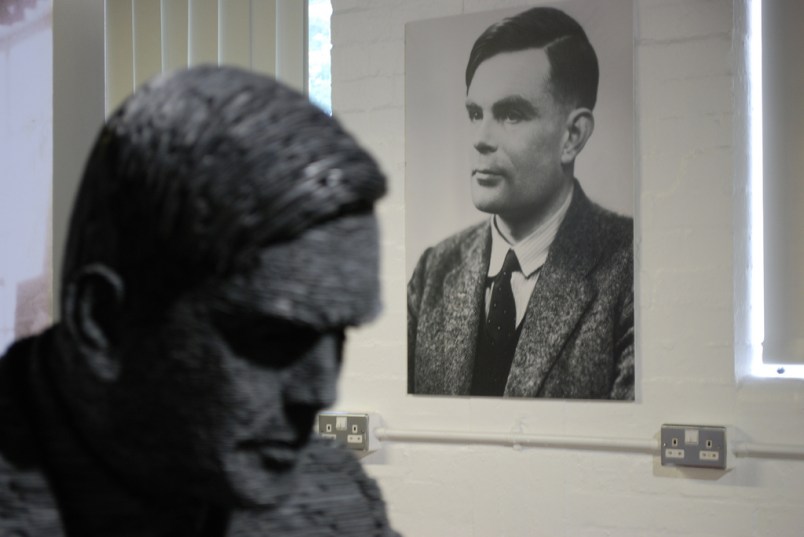LONDON (AP) — Britain has tried to make good by one of its most famous sons, posthumously pardoning Alan Turing for a gay sex conviction which tarnished the brilliant career of the code breaker credited with helping win the war against Nazi Germany and laying the foundation for the computer age.
One author said he hoped Tuesday’s symbolic act — the famous mathematician committed suicide more than 50 years ago — would send a message to countries such as India and Russia, where gays can still be prosecuted for expressing their sexuality.
Others say the pardon doesn’t go far enough, noting that thousands of others shared in Turing’s humiliation in the years during which Britain criminalized homosexual behavior.
For lawmaker Iain Stewart, one of many who campaigned for the pardon, the act helped right a massive wrong.
“He helped preserve our liberty,” Stewart told The Associated Press. “We owed it to him in recognition of what he did for the country — and indeed the free world — that his name should be cleared.”
Turing’s contributions to science spanned from computer science to biology, but he’s perhaps best remembered as the architect of the effort to crack the Enigma code, the cipher used by Nazi Germany to secure its military communications. Turing’s groundbreaking work — combined with the effort of cryptanalysts at Bletchley Park near Oxford and the capture of several Nazi code books — gave the Allies the edge across half the globe, helping them defeat the Italians in the Mediterranean, beat back the Germans in Africa and escape enemy submarines in the Atlantic.
“It could be argued and it has been argued that he shortened the war, and that possibly without him the Allies might not have won the war,” said David Leavitt, the author of a book on Turing’s life and work. “That’s highly speculative, but I don’t think his contribution can be underestimated. It was immense.”
Turing also pioneered the field of computer science, theorizing the existence of a “universal machine” that could be programmed to carry out different task years before the creation of the world’s fully functional electronic computer. Turing ideas matured into a fascination with artificial intelligence and the notion that machines would someday challenge the minds of man. When the war ended, Turing went to work programing the world’s early computers, drawing up — among other things — one of the first computer chess games.
Those accomplishments didn’t save him from arrest and prosecution for the offense of “gross indecency” stemming from his relationship with another man in 1952. Turing was stripped of his security clearance, subjected to monitoring by British authorities, and forced to take estrogen to neutralize his sex drive — a process described by some as chemical castration.
An angry and depressed Turing committed suicide in 1954. S. Barry Cooper, a University of Leeds mathematician who has written about Turing’s work, said future generations would struggle to understand the code breaker’s treatment.
“You take one of your greatest scientists, and you invade his body with hormones,” he said in a telephone interview. “It was a national failure.”
Tuesday’s pardon, which caps years of campaigning by gay rights activists, lawmakers, scientists, and others, was officially granted by Queen Elizabeth II, although in practice such pardons are an executive decision taken by the government.
Leavitt, the author, emphasized the symbolic importance of the pardon in the context of anti-gay laws passed in Russia and reaffirmed in India. British human rights campaigner Peter Tatchell said Turing’s pardon highlighted the need for more action closer to home, saying that tens of thousands of Britons were convicted under the same anti-gay legislation yet aren’t in line for the pardon given to Turing.
“Everyone should be equal under the law,” he said. “It’s wrong to give famous privileged pardons.”
Copyright 2013 The Associated Press. All rights reserved. This material may not be published, broadcast, rewritten or redistributed.
Image: Flickr / Mr. Ush






